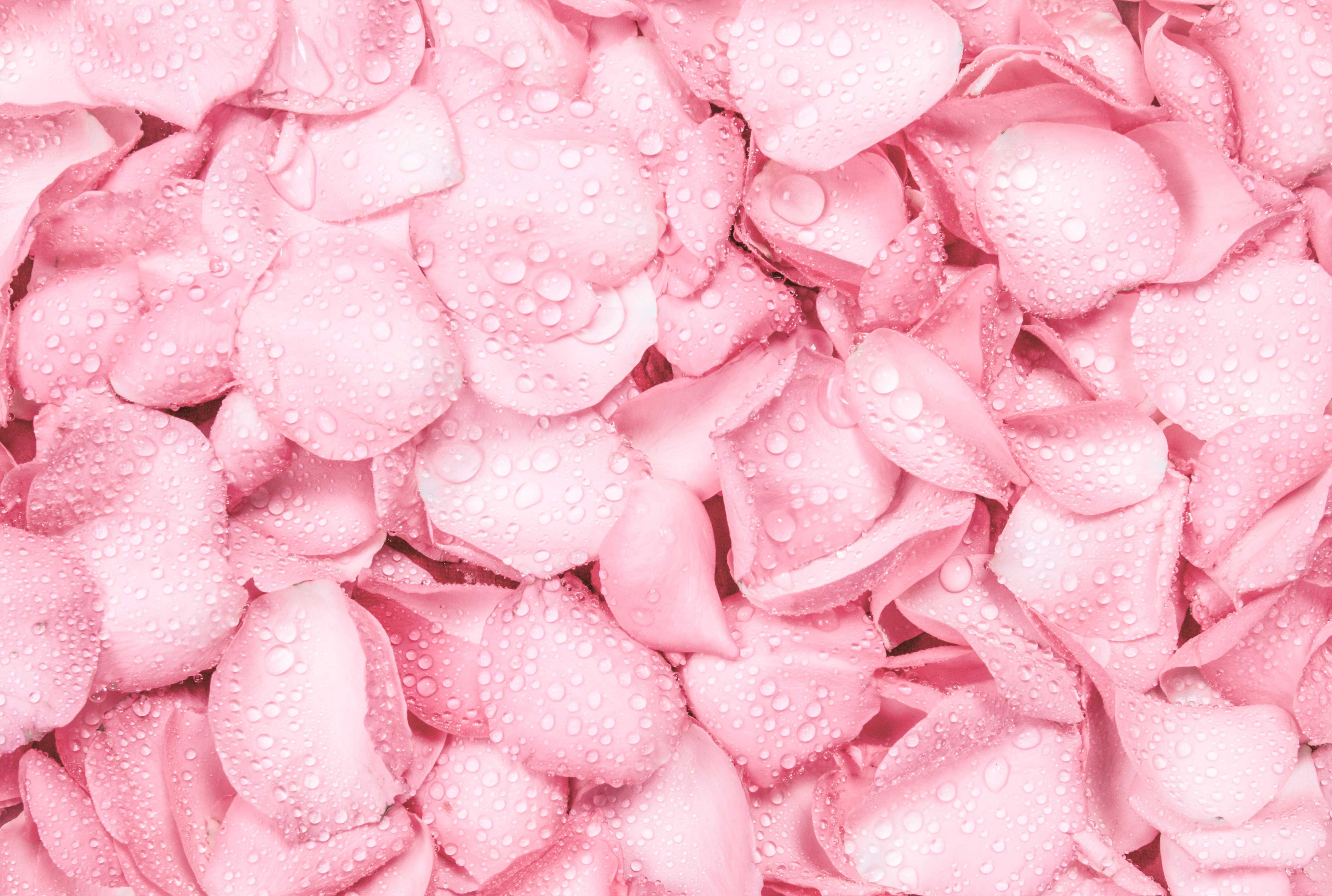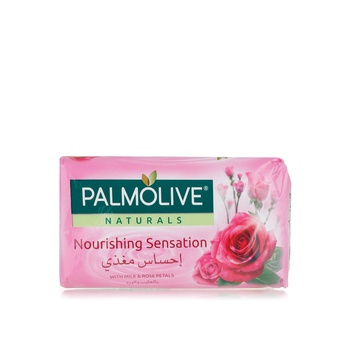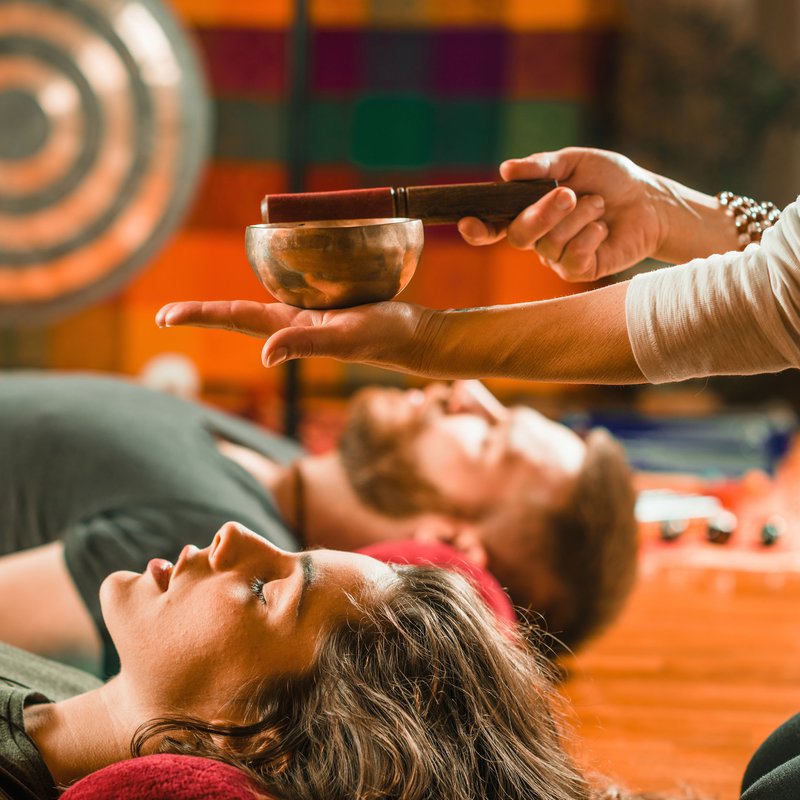In a time where well-being is becoming more and more important to people, we find ourselves increasingly looking to the past and re-exploring natural ingredients that will help us to lead healthier lives. We take comfort from the knowledge that natural remedies, which have been tried and tested for centuries, clearly have something going for them and therefore we try to incorporate them into our modern lives, following the Spinneys ethos of Eat Well, Live Well. One such ingredient enjoying a resurgence of interest is rose water, the health-giving benefits of which are starting to be appreciated by a whole new contemporary audience.
To the ancient Greeks and Romans, public rose gardens were as important as orchards and wheat fields. With the flower’s myriad uses, it’s easy to see why. From flavouring food to helping reduce the appearance of puffy eyes, rose water is something of a natural cure. Applied to mosquito bites, it stops itching and it can also be used to soothe the symptoms of eczema. Its use has been recorded as far back as 1200BC in the Mycenaean city of Pilos, where it was traded commercially.
Pure rose water is produced from rose petals while flavoured rose water may be water that has been scented with rose essence, which could be artificial. Although most modern American and European bakers prefer vanilla as a flavour in baked goods, rose water was the popular flavour-enhancer for sweets in colonial times, when vanilla beans were grown in only in a few tropical countries and therefore were rare and costly. The colonial kitchen garden would almost certainly contain fragrant roses, whose blossoms could be easily dried or distilled, be it for culinary or medicinal use.
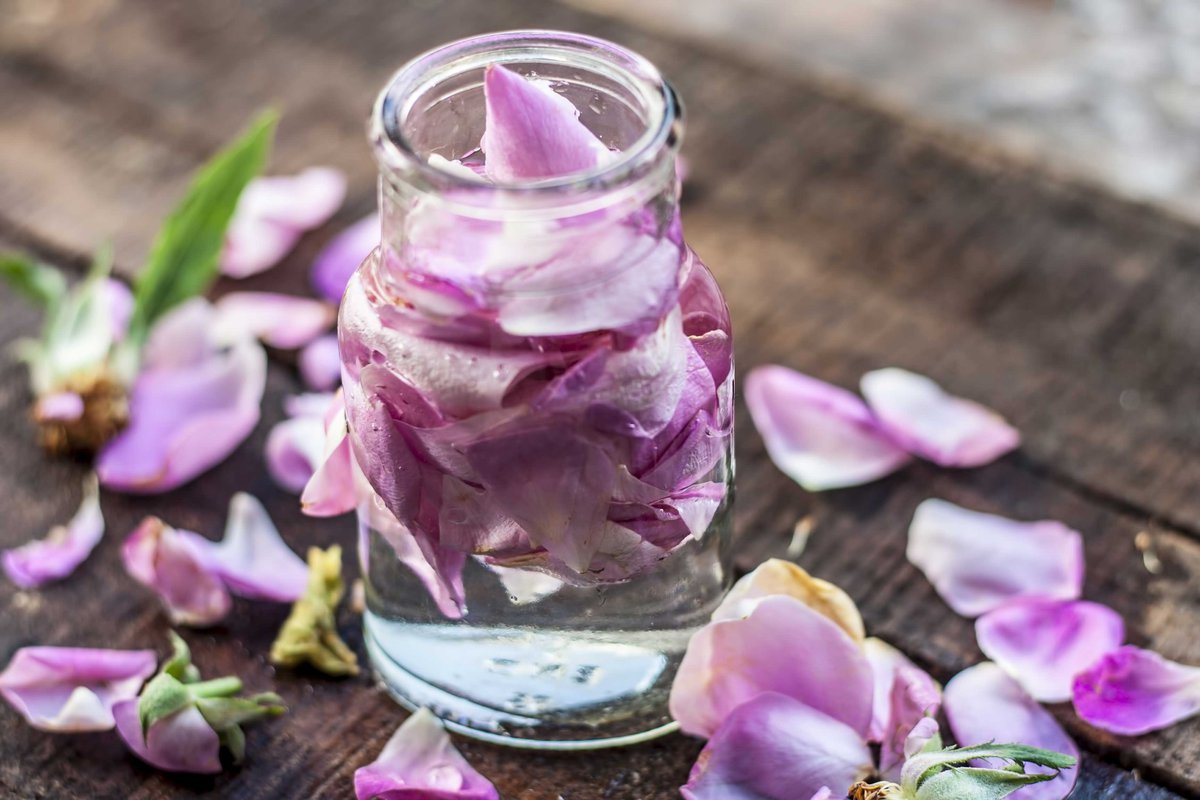
Rose water and rose oil were used in the traditional medicines of China, India, Assyria, Egypt, Greece and Rome, to cure a wide range of medical conditions. In Iran, rose water is the first remedy people will try for many ailments, from an insect bite to cardiac palpitations. Almost every Iranian house has a bottle of it in the medicine cabinet, as well as the kitchen cupboard.
Feeling hot and bothered? Apply rose water directly to the face as a natural fragrance and moisturiser. Or, if your eyes are feeling a little puffy, place a bottle of rose water in the fridge for half an hour before applying some on a cotton wool swab and placing gently on your eyes. It will soothe the skin around your eyes and prevent or reduce puffiness. It’s an excellent make-up remover, too – just apply to a cotton wool ball and sweep across your face to clear the skin. As it smells so fragrant, rose water is often sprinkled around the reception areas at Indian weddings, to welcome guests. Why not add some to your bath water for a fragrant, rejuvenating experience?
Rose water is rich in flavonoids, antioxidants, tannins and essential vitamins, including A, C, D, E and B3. What’s more, a simple yet delicious drink can be made by mixing rose water syrup with cold, creamy milk. In Pakistan and India, it is also used to flavour dairy-based dishes, such as rice pudding and it is a key ingredient in sweet lassi – a drink made from yoghurt, sugar and fruit juice. Turkish delight is yet another beloved food flavoured with rose.
With its natural antiseptic, anti-inflammatory and anti-bacterial properties, rose water is a powerful tool used to treat skin infections. Gently rubbed over sunburn or added to a warm bath, rose water will also help soothe scorched skin. It strengthens the roots of your hair, promotes growth and rejuvenates the scalp, preventing inflammations.
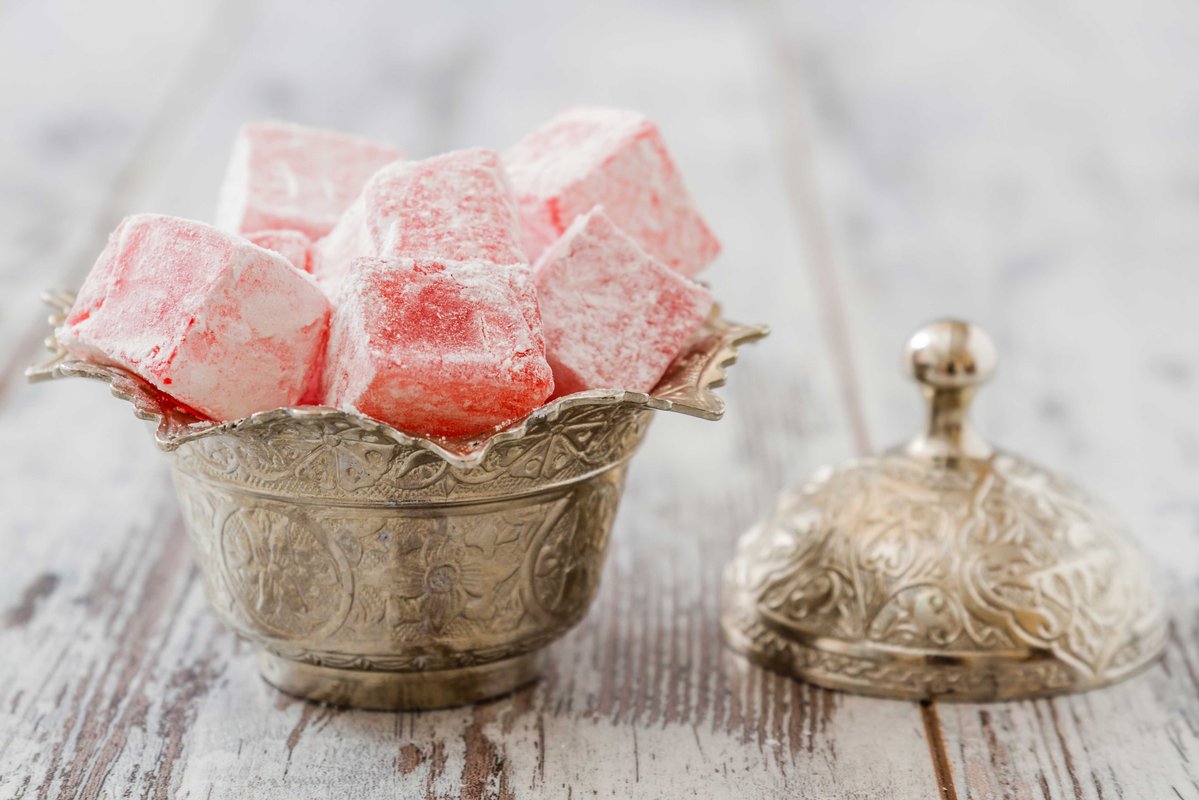
As with all ingredients, an organic rose water is always the best option. Many rose waters are perfumed with extracts of pure rose water so check the list of ingredients on the bottle. Some add citric acid, propylene glycol and/or potassium sorbate, as food preservatives, which can be toxic in large doses.
